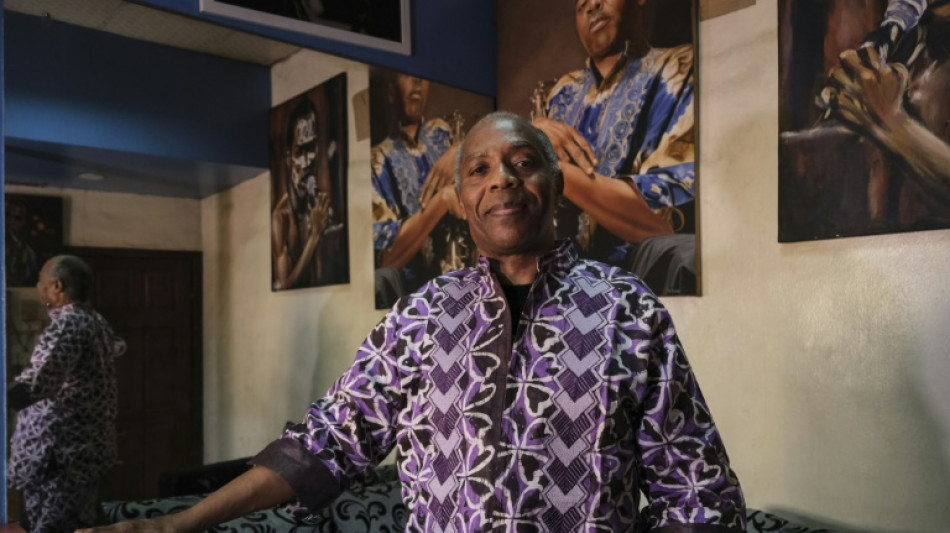
RBGPF
63.5900


Sat comfortably in a large chair at the New Afrika Shrine, his family's legendary Nigerian music venue, Femi Kuti was surrounded by history.
The concert hall is an homage to his father Fela Kuti's original Shrine, which had also been located in the northern outskirts of Lagos before its demise.
Femi's own music awards are scattered around, recognition for his determination to keep fighting the good fight his Afrobeat legend father was known for -- calling out corruption and injustice in Africa's most populous nation.
Part of a family defined by its determination to speak defiantly about what was going on around them -- whether through lyrics or protest or both -- Femi Kuti, however, is ready to turn inward, and focus on the "virtues that have guided me in my life", he told AFP in a recent interview.
Those reflections will be apparent in the 62-year-old's upcoming album, "Journey Through Life," his 13th record, set to release on April 25.
In the upcoming record, he sings about "the kind of advice I give myself to where I am today," he said. The title track, for example, is "not political".
But listeners should not expect a member of the Kuti clan to give up politics completely.
- From Afrobeat to Afrobeats -
The elder Kuti came to define Afrobeat, the 70s-era jazz- and funk-inspired genre that would later give birth to the modern, R&B-inspired Afrobeats -- plural -- style shaking up the global music industry today.
He was also a poster child of protest -- using his lyrics to call out government abuses, even under brutal military juntas that ran Nigeria off and on before its latest transition to democracy in 1999, two years after his death from AIDS.
Femi Kuti's grandmother, meanwhile, was a women's rights and independence activist.
It might be a given, then, that the virtues that guided Femi Kuti would be political in nature -- though he has tempered his expectations of what exactly music can do.
"My father used to say music is the weapon. I think music is a weapon for change, but it can't be the soul," he said. "We still need organisations."
After all, the elder Kuti was repeatedly beaten and jailed by authorities -- and with an incomplete record to show for it. Democracy might have eventually taken hold, but the corruption he railed against has been trickier to uproot.
"Self-reflection makes me think maybe it's not possible to change the world. But one thing I'm sure of is that I can change myself, I can make myself a better person," Kuti told AFP.
- New songs, same struggles -
Femi Kuti has spent the last four decades as the heir to his father's activism and musical style.
Together with his son Made and brother Seun, he keeps the New Afrika Shrine a sweaty, bumping place to be each Sunday night, and continues to tour internationally.
The album, Kuti promised, is "still very political" -- and Kuti has some of his own thoughts to share as well.
"I've been singing political songs for 38 years," yet not much has changed. In "Nigeria, it's gotten worse".
"Corruption must stop in the political class," he said. "Everybody thinks the only way to be successful is through corruption."
"The health care -- there's nothing that works," he said.
"We can't afford a good education (for children)."
These days he is unlikely to be beaten or jailed like his father -- which traumatised his family growing up, he said.
Though things are not always rosy for musicians in the modern political climate either.
Broadcasting authorities earlier this month banned "Tell Your Papa", by Eedris Abdulkareem, for its lyrics blasting President Bola Tinubu's handling of the economic and security situation in the country.
The government is pursuing painful -- though necessary, it argues -- economic reforms, while insecurity from jihadist groups continues to menace the country's north.
"It will probably be very hard for me to not talk on political subjects," Kuti admitted, before an electrifying live performance at an all-night show.
"I've lived it all my life with my father"
O.Yip--ThChM